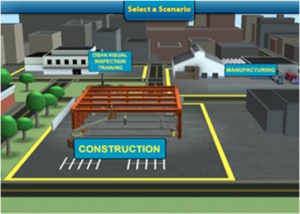 The construction industry is notorious for being filled with potential hazards that cost construction companies billions of dollars in higher Contractor Insurance premiums. Common hazards include falling from heights, electric shock, scaffolding collapse, etc., but have you ever considered the hazards of working outside.
The construction industry is notorious for being filled with potential hazards that cost construction companies billions of dollars in higher Contractor Insurance premiums. Common hazards include falling from heights, electric shock, scaffolding collapse, etc., but have you ever considered the hazards of working outside.
On a beautiful spring or fall day, working outside seems like a real blessing – definitely better than being stuck inside an office or manufacturing facility. But working outside does pose additional health risks that can cause everything from mild discomfort to severe injuries and even death.
Understanding these dangers and how to prevent them, are essential if you want to keep your workers safe and your expenses down. Here is a list of outdoor hazards that you should be aware of and train your employees to avoid.
Lyme Disease
Hazard:
According to the Centers for Disease Control and Prevention, Pennsylvania has had the highest number of Lyme disease cases in the U.S. since 2011.
"Untreated, Lyme disease can spread to other parts of your body for several months to years after infection, causing arthritis and nervous system problems,” according to the Mayo Clinic. Plus, ticks can transmit other illnesses, such as babesiosis and Colorado tick fever.
Prevention:
Ticks are most active between April and September. During those months, try to avoid wooded and bushy areas, use repellents that contain 20 to 30% DEET, and use products that contain permethrin on clothing.
Sun Exposure
Hazard:
One of the best things about regularly working outside is a killer tan. Unfortunately, the same thing that creates that tan can also cause skin cancer.
According to the Skin Cancer Foundation, “about 86 percent of melanomas can be attributed to exposure to ultraviolet (UV) radiation from the sun,” and “about 90 percent of nonmelanoma skin cancers are associated with exposure to ultraviolet (UV) radiation from the sun.”
Prevention:
Use a broad-spectrum sunscreen with at least a 15 SPF before going outside, even on cloudy or cool days, and reapply regularly, especially if you are sweating. Check the SPF’s expiration date. Wear clothing that covers as much skin as possible as it acts as a barrier against UV rays.
Insect Stings and Bites
Hazard:
In Pennsylvania, people working outside need to watch out for stings from insects such as bees, wasps, and hornets, and bites from both venomous and non-venomous spiders. While most insect stings and bites only cause mild discomfort, some can result in a severe allergic reaction that requires immediate medical attention and can even cause death.
Prevention:
Try to avoid attracting insects by staying away from strong-smelling products, such as colognes and some soaps, shampoos, and deodorants. Wear clothing that covers as much of the body as possible. Try to ignore and not swat at a single flying insect, but if attacked by several stinging insects, run away from them.
Any workers who know they are prone to severe allergic reactions from insect bites or stings should wear medical ID jewelry and carry an epinephrine pen.
Poisonous Plants
Hazard:
If you come in contact with plants, such as poison ivy, poison oak, and poison sumac, the urushiol oil from those plants can cause an itchy rash, bumps, or blisters. For some, the rash can be relatively minor, but for others, it can cause severe swelling or trouble breathing or swallowing.
Prevention:
Wear clothing that covers as much of the body as possible, learn to identify poisonous plants, clean tools and clothing that may have been exposed to the oil, and immediately wash skin exposed to the oil with soap and water.
Extreme Temperatures
Hazard:
Both heat and cold stress can cause health issues that range from slight discomfort to death. Heat stress disorders include heat exhaustion, heatstroke, heat cramps, heat rash, and fainting.
Several factors contribute to the dangers of cold stress: temperature, wind, dampness, and cold water. Cold stress can occur in mild temperatures that are coupled with rain and/or wind. Cold-related illnesses include hypothermia, frostbite, and trench foot.
Prevention:
Reduce heat exposure by ventilating areas of high heat and use cooling fans and personal cooling devices (cooling vests, heat reflective clothing, etc.). Wear loose-fitting, lightweight clothing, drink plenty of liquids, and try to schedule heavy work during cooler parts of the day.
When working in frigid climates, prevent cold stress by wearing at least three layers of clothing. Wear a hat, insulated boots, and insulated gloves.
Lower Contractors Insurance Costs the Easy Way!
Preventing these outdoor dangers can help lower your Contractors Insurance costs. Another way to lower your insurance premiums is to work with one of the independent agents at the American Insuring Group.
We will compare costs and coverages among many insurance providers, and find the best combination of protection and price to meet your needs. So call today at (800) 947-1270 or (610) 775-3848 or connect with us online to start saving!



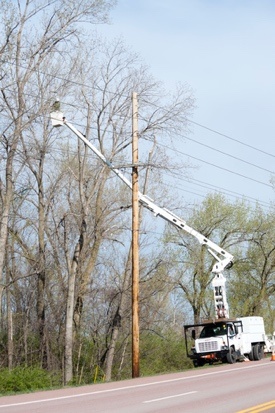 The storm was ferocious. Luckily, your buildings were spared damage from the high winds and heavy rains; however, a few miles away the storm brought down power lines that supply your business with electricity. While there is no physical damage to your property, you’re still out of business without power. Does your
The storm was ferocious. Luckily, your buildings were spared damage from the high winds and heavy rains; however, a few miles away the storm brought down power lines that supply your business with electricity. While there is no physical damage to your property, you’re still out of business without power. Does your 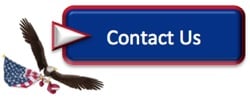
 Every small business should conduct a risk management assessment prior to reassessing their
Every small business should conduct a risk management assessment prior to reassessing their 
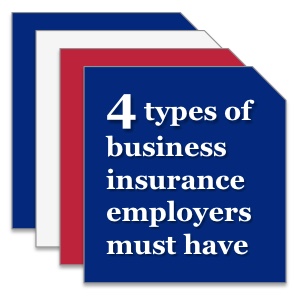 You’re about to become an employer. Maybe you’ve been in business for a while, but now you’re ready to hire your first employee. You’re excited; this means your business is growing. Or, maybe you’re just starting a business and you need employees to help run that business.
You’re about to become an employer. Maybe you’ve been in business for a while, but now you’re ready to hire your first employee. You’re excited; this means your business is growing. Or, maybe you’re just starting a business and you need employees to help run that business. 
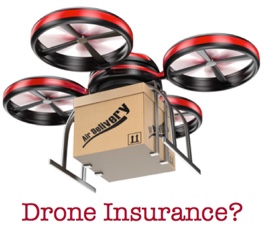 Businesses are discovering many uses for drones – also known as unmanned aircraft systems (UAS). In fact, total spending for military and commercial drones is expected to reach $89.1 billion over the next ten years. This translates into approximately 30,000 small commercial drones in use by 2020, according to the Federal Aviation Administration (FAA).
Businesses are discovering many uses for drones – also known as unmanned aircraft systems (UAS). In fact, total spending for military and commercial drones is expected to reach $89.1 billion over the next ten years. This translates into approximately 30,000 small commercial drones in use by 2020, according to the Federal Aviation Administration (FAA).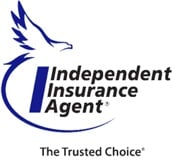 In February 2012, congress mandated that the Federal Aviation Administration (FAA) find a way to integrate drones into U.S. airspace by September 2015. With that deadline looming, the FAA is nowhere close to finalizing its plans. This lack of regulation and the fact that there is very little loss history available at this point makes it challenging for insurance companies to develop policies. It's therefore likely that drone insurance rates may vary widely among insurance providers. Therefore, it's helpful to acquire drone insurance protection from an
In February 2012, congress mandated that the Federal Aviation Administration (FAA) find a way to integrate drones into U.S. airspace by September 2015. With that deadline looming, the FAA is nowhere close to finalizing its plans. This lack of regulation and the fact that there is very little loss history available at this point makes it challenging for insurance companies to develop policies. It's therefore likely that drone insurance rates may vary widely among insurance providers. Therefore, it's helpful to acquire drone insurance protection from an  For more information about drone insurance and other commercial insurance needs,
For more information about drone insurance and other commercial insurance needs, 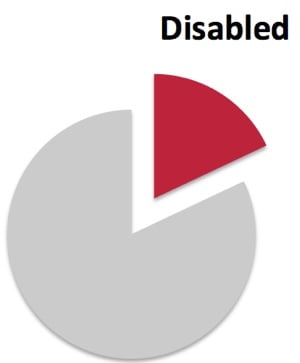 More than 50 million Americans – 18% of the population – have disabilities, making them the largest minority group in the country. In addition, approximately 71.5 million baby boomers will be over the age of 65 by the year 2030; many will require special provisions to meet their age-specific physical needs.
More than 50 million Americans – 18% of the population – have disabilities, making them the largest minority group in the country. In addition, approximately 71.5 million baby boomers will be over the age of 65 by the year 2030; many will require special provisions to meet their age-specific physical needs.  Whether you’re a subcontractor or a general contractor – whether you build small backyard sheds or giant commercial buildings – whether you’re a one-man remodeling business or a multi-million dollar construction company, there are three types of insurance you need to consider. In other words, the size of your business and the size of the project make little difference. If you want to protect your investment, your employees, and even your business, there are three types of
Whether you’re a subcontractor or a general contractor – whether you build small backyard sheds or giant commercial buildings – whether you’re a one-man remodeling business or a multi-million dollar construction company, there are three types of insurance you need to consider. In other words, the size of your business and the size of the project make little difference. If you want to protect your investment, your employees, and even your business, there are three types of  For more customized information about your construction insurance or
For more customized information about your construction insurance or  Every employer is responsible for insuring a safe working environment for his or her employees. If you’re in construction, workplace safety should move to the top of your priorities because more than 20% of the work-related fatalities in 2013 occurred in the construction industry.
Every employer is responsible for insuring a safe working environment for his or her employees. If you’re in construction, workplace safety should move to the top of your priorities because more than 20% of the work-related fatalities in 2013 occurred in the construction industry. 
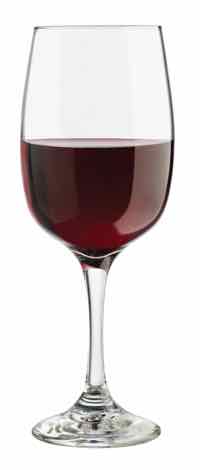 Let’s say you own a restaurant. One night, a group of friends enjoy dinner and a few drinks at your restaurant. They decide to go to a club where they dance and consume more alcohol. Then, they go to a corner pub to wind down with a few more drinks. On the way home, one of those friends causes an accident that injures or – God forbid – kills someone in the process.
Let’s say you own a restaurant. One night, a group of friends enjoy dinner and a few drinks at your restaurant. They decide to go to a club where they dance and consume more alcohol. Then, they go to a corner pub to wind down with a few more drinks. On the way home, one of those friends causes an accident that injures or – God forbid – kills someone in the process.